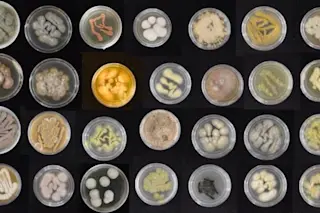Household refuse typically goes into a plastic bag, out to the curb, and into a garbage truck—never to be seen again. Or so it seems. Trash lives on long after it leaves the home. In fact, it may live too long.
Far too much household waste does not decompose, or it decays so slowly you might not notice. Some glass, plastic, and metal takes a century or more to break down, says the United Nations Environment Programme. Some materials take more than a millennium, some more than a millennium squared. Organic waste that should decompose quickly in landfills often does not because it is overly compacted or is in plastic bags that seal out oxygen and soil microbes.
The longest-lasting wastes are certain plastics, which seem to live forever. More plastics, though, are being made from cornstarch polymers, says biochemist Lawrence Wackett of the University of Minnesota. “They can tune the biodegradability to make it last six months or a year.”
How long does it take for some commonly used products to biodegrade?
Plastic soda bottles: Forever Glass bottles: 1 million years Batteries: 100 years Aluminum and tin cans: 50 to 100 years Plastic bags: 10 to 20 years Plastic-coated milk cartons: 5 years Orange peels: 6 months Paper: 2 to 5 months














